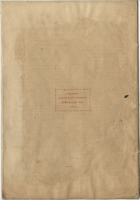Search the Special Collections and Archives Portal
Search Results
UNLV Libraries Collection of Aztar Corporation Financial Reports and Press Materials
Identifier
Abstract
The UNLV Libraries Collection of Aztar Corporation Financial Reports and Press Materials includes annual reports, financial reports, equity research reports, prospectus, press releases, market analysis, a company plan, and newspaper clippings for Aztar Corporation which was based in Phoenix, Arizona, dating from 1991 to 2006.
Archival Collection
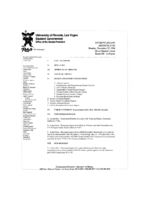
Meeting minutes for Consolidated Student Senate University of Nevada, Las Vegas, November 25, 1996
Date
Archival Collection
Description
Text
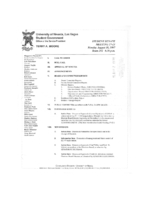
Meeting minutes for Consolidated Student Senate University of Nevada, Las Vegas, August 18, 1997
Date
Archival Collection
Description
Text
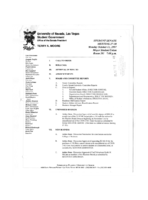
Meeting minutes for Consolidated Student Senate University of Nevada, Las Vegas, October 13, 1997
Date
Archival Collection
Description
Text
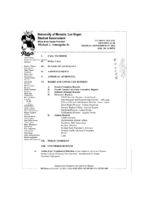
Meeting minutes for Consolidated Student Senate, University of Nevada, Las Vegas, September 15, 2003
Date
Archival Collection
Description
Text
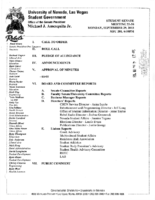
Meeting minutes for Consolidated Student Senate, University of Nevada, Las Vegas, September 29, 2003
Date
Archival Collection
Description
Text
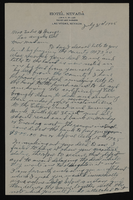
Correspondence, Levi Syphus to Sadie George
Date
Archival Collection
Description
Text
Greenpeace Pacific Southwest Records
Identifier
Abstract
The Greenpeace Pacific Southwest Records are comprised of files and documents pertaining to environmental activism in Southern Nevada from 1962 to 1994, primarily addressing the organization of protests at the Nevada Test Site. The collection contains newspaper articles, newsletters, publications, financial records, protest information, correspondence, meeting minutes, articles of incorporation, Freedom of Information Act requests, and Nevada Test Site information. Also contained in the collection are maps and documents related to various environmental issues such as nuclear waste, land use, wildlife protection, and international environmental activism.
Archival Collection

